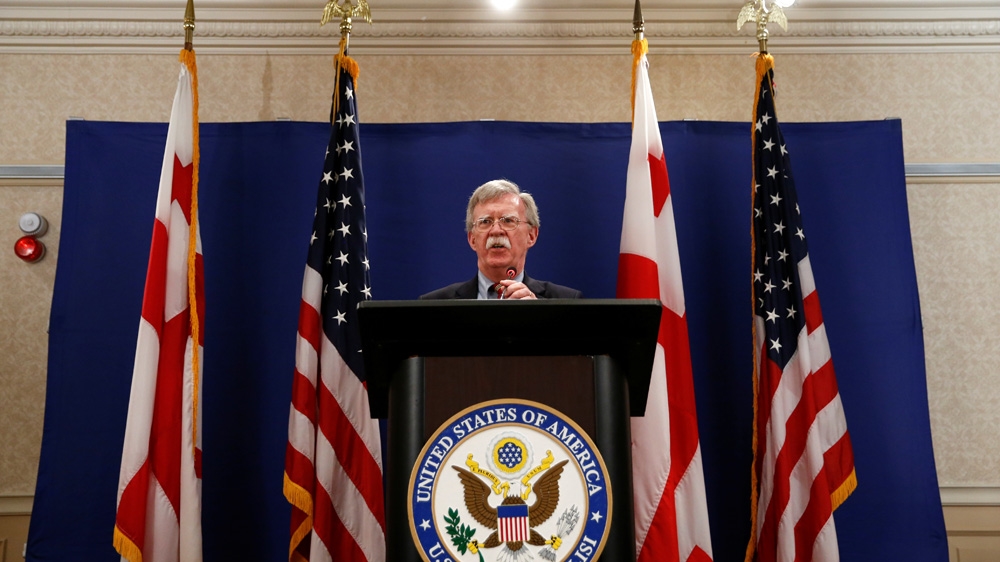Cuba’s president set to meet Putin in Moscow for economic talks
Cuba’s President Miguel Diaz-Canel has arrived in Russia for talks expected to focus on strengthening economic ties between the two countries.
The 57-year-old is due to meet his Russian counterpart Vladimir Putin in the capital, Moscow, on Friday as part of his first tour abroad that will also includes stops in China, North Korea, Vietnam and Laos.
On Thursday, the Kremlin released a statement saying the two leaders planned to discuss “the state and prospects of the further consolidation of Russian-Cuban strategic partnership in various spheres and discuss opinions on current international and regional problems”.
During the Cold War, Moscow and Havana were close allies, with the Soviet Union pumping millions of dollars into the small Communist-run island.
But following the collapse of the Soviet Union at the end of 1991 and subsequent economic hardship, Russia withdrew its economic aid to Cuba.
Putin, who visited Cuba in 2000 and 2014, has sought to revive ties with the Caribbean island. On Tuesday, Russian officials signed contracts worth $260m to modernise Cuban energy facilities and a metal factory.
The two countries have also discussed expanding military ties.
Diaz-Canel, who assumed office in April, is the first person outside the Castro family to lead Cuba since the Cuban Revolution in 1959.
According to Cuba’s foreign ministry, Diaz-Canel will also transit through some western European capitals during his trip.
 |
| John Bolton has criticised Cuba as being part of a ‘troika of tyranny’ [File: David Mdzinarishvili/Reuters] |
No signs of detente with US
The tour comes as Havana is considering far-reaching constitutional reforms, which include liberalising the economy and dropping the goal of building Communism. It also seen as an opportunity for Cuba to reinforce and revive alliances as relations with the United States continue to deteriorate.
On Thursday, US National Security Adviser John Bolton announced that the State Department had banned transactions with more than two dozen Cuban entities associated with the Cuban military and intelligence services.
Speaking in Miami, which is home to many Cuban exiles, before next week’s mid-term elections, Bolton branded Cuba and its left-wing regional allies Venezuela and Nicaragua a “troika of tyranny”.
His comments came as the United Nations General Assembly overwhelmingly approved a resolution condemning the economic embargo of Cuba by the US, while also rejecting proposed amendments put forward by Washington critising the island’s human rights record.
The Assembly voted 189-2 to approve the Cuban-sponsored resolution, with no abstentions. The US and Israel voted “no” and Moldova and Ukraine did not vote.
While the vote is non-binding, it provides an indicator of the opinion of the international community and allows Cuba an annual stage to demonstrate the isolation of the US position on the embargo.
A similar vote on the embargo – which was imposed in 1960 following the revolution led by Fidel Castro that resulted in the nationalisation of properties belonging to US companies and citizens – has been held annually for 27 years.
Cuban Foreign Minister Bruno Rodriguez Parrilla called the embargo a “flagrant, massive and systematic vioation of the human rights of Cuban men and women” and said the US had no moral authority to criticise Cuba and others on human rights.
‘A waste of time’
In the separate decision on the US amendments, which were voted on individually, Ukraine and Israel were the only countries to join the US in voting “yes” to all eight measures, while the Marshall Islands backed one.
All of the amendments failed after more than 113 countries voted against them. More than 65 countries abstained.
More than 113 countries voted against them and more than 65 abstained.
Outgoing US Ambassador Nikki Haley called the vote “a waste of time” and said afterwards that the Cuban people have “once again been left to the brutal winds of the Castro regime”.
“They have been abandoned by the United Nations and most of the world’s governments, but the Cuban people are not alone today,” Haley said.
“The American people will stand with them until they are restored the rights that God has given us all, rights that no government can legitimately deny its people.”
Former Cuban President Raul Castro and then-US President Barack Obama began an historic diplomatic re-engagement in July 2016, which paved the way for improved ties between the two countries.
However, relations have once again soured under current US President Donald Trump, who has announced new trade and travel restrictions against the island.
SOURCE:
Al Jazeera and news agencies




